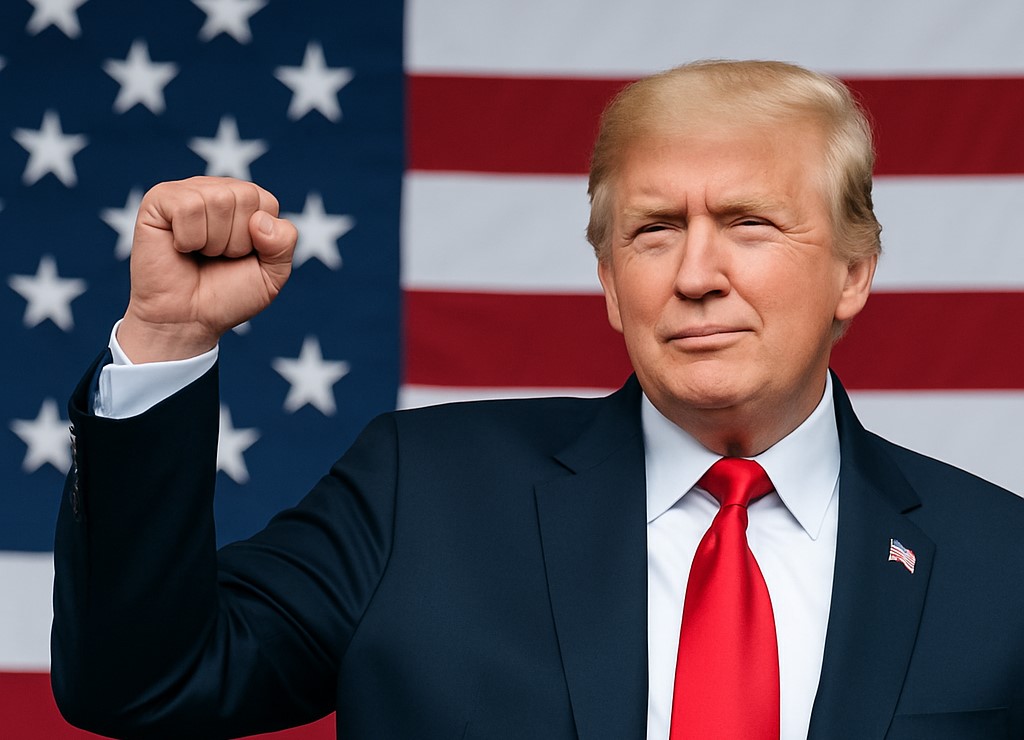In the run-up to the just concluded U.S. presidential election in which Donald Trump emerged as the winner, a 1988 video of Donald Trump being interviewed by the legendary Oprah Winfrey began to circulate on social media. In the interview, Oprah had asked about Mr Trump’s criticism of U.S foreign policy, and in response, he said that their allies needed to be made to pay their fair share in funding international organizations and he went on to complain about the U.S liberal trade policies with countries like Japan being allowed to dump all their products in the U.S market while they protected their markets from being penetrated by U.S companies.
Twenty-eight years later in 2016 when he was campaigning in the presidential race, he repeated the same rhetoric but this time around instead of Japan, China had become the big elephant in the room, and with his emergence as president in 2017, he did go on to implement trade reforms that sought to protect American businesses against the influx of Chinese goods while also mounting pressure on the Chinese government to open up their markets to American businesses.
With the second coming of Mr Trump, the die is cast and there are no prizes for guessing what the economic policy direction of his administration would be neither is there any doubt about the tenacity with which he would pursue these objectives.
As was during the 2016 presidential election, his campaign slogan for the just concluded election was “Make America Great Again” and to achieve this, Trump is heavily focused on implementing economic policies that he believes will help grow the American economy while asserting America’s position as the world’s most dominant super power.
To achieve his economic goals, Trump plans to reduce taxes for corporations and small businesses to encourage them to invest more while also reducing regulations to promote economic growth. Like he did in his trade war with China during his first term, he also plans to impose new tariffs to protect American industries from cheaper foreign competition while increasing military spending to strengthen national security which will boost America’s already vibrant defence industry.
Prominent amongst his policies are plans to make America energy sufficient by making it the most dominant energy producer in the world while he also plans to increase funding to housing and healthcare sectors which will boost economic activities in these sectors.
While the economic prospects of a Trump presidency seems bright for America, given America’s position as the world’s biggest economy and largest importer of foreign goods, Trump’s protectionist policies are likely to have negative consequences for trade partners who depend heavily on America for patronage and most especially China that had previously been a target of Trump’s trade wars.
Trump’s protectionist policies, such as high tariffs on Chinese goods, could also escalate into full-blown trade wars, damaging global supply chains and leading to higher prices for consumers. The impact would be felt across various industries, from manufacturing to agriculture, and could lead to widespread job losses.
While his goal of making America self-sufficient in energy production could lead to a decline in the demand for crude oil and natural gas globally which will then lead to price drops and its consequent effects on countries that depend heavily on fossil fuels for their revenues.
A second Trump term could also lead to a more fragmented and isolated global economy. The U.S. may pull back from international institutions and agreements, such as the World Trade Organization and the Paris Climate Accord, leading to a decline in global cooperation. This would have severe consequences, including a decline in international trade, investment, and economic growth.
In the Asia-Pacific region, increased tensions with China will potentially lead to conflict and economic instability in the region while China is also expected to retaliate against Trump’s protectionist policies. In Europe, relationships are expected to be strained as Trump kicks against implementing some of the climate change policies but on the flip side, Trump might be able to bring the war in Ukraine to an end given his adept negotiation skills and the rapport he has been able to develop with the Russian president.
There is also expected to be increased tensions with countries like Mexico and Venezuela as Trump seeks to block migrants from Latin American countries from gaining access to the U.S. which could potentially lead to economic instability and migration crises in the region.
Trump’s Foreign Policy thrust of preventing a third world war by restoring peace in Europe and de-escalating tensions in the Middle-East by prevailing over the warring factions to sheath their swords will also have positive consequences for the global economy.
Donald Trump’s presidency has significant implications for the global economy. While his policy thrust is likely to re-invigorate the American economy for positive growth, his protectionist and self-reliance in energy policies could lead to instability and uncertainty in the global market. His policies’ consequences would be far-reaching, affecting various regions and industries worldwide.
Oshobi, a development economist, management consultant, and author writes from Lagos, Nigeria.

